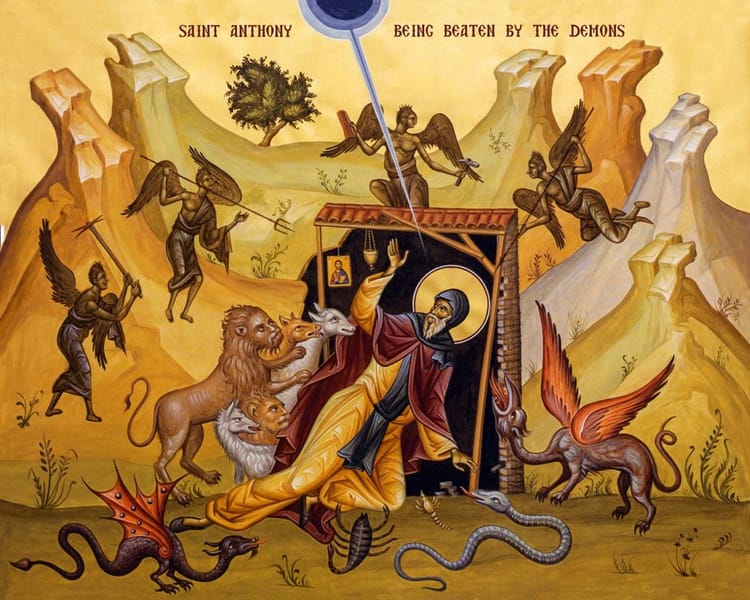When We Barter with the Blueprint: Trusting God in the Middle of the Mess

“Even without the full blueprint, we must trust that God will place the right wrench in our hands and point us to the next bolt.”
Have you ever taken over a project already underway?
Have you ever walked up to a piece of half-reassembled equipment and tried to figure out where the last guy left off?
God’s will is like a two-sided coin. One side is clear and straightforward, summed up by Jesus' response when asked what the greatest commandment is: You shall love the Lord your God with all your heart, soul, mind, and strength—and your neighbor as yourself (cf. Mark 12:29–30).
But the other side? That’s the personal side—where God is deeply invested in the details of our lives. He has a unique plan crafted for us. Discerning our vocation is how we begin to interface with that plan. But even a life guided by vocation brings more questions: how, why, where, and what for? We seek God’s will in a career change, in relocating our families, in how to serve our church and community—and in whether we’re even on the right path.
Despite Scripture’s warning to “lean not on your own understanding,” we often wrestle with the world without first consulting God. We apply logic and strategy to what are ultimately spiritual realities, and then get frustrated when nothing fits. Life becomes a puzzle with too many missing pieces—and only when we’re sick of the passive-aggressive coworker, the broken cabinet door in our too-small house, or the bounce on our latest check do we finally drop to our knees and ask, “God… what do I do?”
That’s us, barging in mid-project. God’s been carefully orchestrating the entire system—nudging and guiding—and we walk in, see what looks like a half-baked mess, and say, “What is this?” Then we lose some bolts, strip a few screws, and stand back pleading for help.
Scripture tells us we can’t fully know or understand the mind of God. But the saints give us hope. Through grace and sanctification, they became attuned to God's heart and will. They didn’t see time the way we do. They saw with the eyes of the Church—an institution that was, is, and will be forever. They accepted that the harvest they were sowing might come hundreds of years after their mortal lives had ended. They labored with the Last Things always before them, knowing that their role—however small—mattered to God’s masterwork.
Abandonment to God's will is both a process and a gift of grace. We may manage a bold “Yes,” like Mary, once or twice—but what about the daily yes? The one that means relinquishing anger, being the first to apologize, or doing the hidden, thankless task no one else will touch? To love and serve the Lord means getting out of our own way and letting Him direct our path. But too often, we’re elbows-deep in thickets, hacking out our own shortcut, before looking up and muttering, “A little help?”
Maybe He only shows us one step at a time because if we saw the whole blueprint, we’d meddle too much. In moments of frustration, anxiety, or desolation, our most honest prayer might be: “I trust You’re working this for my good… but I can’t see how.” In my experience, those prayers aren’t answered with a roadmap—but with peace. When we freely offer our will to Him, He consoles us with the quiet understanding that we may be seeds… whose harvest we’ll never see.
The saints can feel like spiritual giants, their lives a stream of mighty deeds and heroic virtue. Even their Dark Nights seem, in hindsight, holy. But the truth is, their sanctity was forged in ordinary faithfulness—step by step, often in obscurity, just like us.
God is not a foreman we interrupt with questions mid-project. He’s the Master Builder. Our job isn’t to critique His blueprints, but to pick up the tools He’s handed us—one obedient task at a time.
We may even imagine the Apostles watching the Passion unfold and thinking, “Something’s gone wrong. This isn’t how it was supposed to go.” And our own souls echo that when all our logic, planning, and scheming fall flat. Hear the words of Jesus from Matthew’s Gospel: “Why are you afraid, O you of little faith?” Is He speaking to us?
Scripture gives us images of God’s providence drawn from nature—but I don’t always relate to ravens or lilies of the field. Raising six kids, my wife and I more often feel like Rodney Dangerfield: “I don’t get no respect!” Their complaints are trivial on the surface—screen time, missing ice cream, soul-crushing boredom—but their disregard for our provision may actually be a sign of their security. They know they’re cared for. Isn’t that what we often do to God? Worry over small things while He’s doing exactly what He promised—providing.
Moses never entered the Promised Land. Abraham believed, but the promise was so far off that God may as well have used the dad line: “Later.” God’s plans stretch further than we can see. He may be building something that won’t fully bear fruit for generations. Discipleship means showing up anyway, with trust, patience, and humility.
Life can overwhelm us. In these moments, we must ask whether our confusion or anxiety is of our own making. Are we trusting God's providence—or leaning on our own understanding? We may think we see the Big Picture, but what if today’s trial is the stepping stone to holiness for someone you’ll never meet? What if your faith isn’t only for you, but part of a legacy you’re crafting with God?
Even without the full blueprint, we must trust that God will place the right wrench in our hands and point us to the next bolt. These labors matter in the moment, but often they are humble steps in His masterwork.
To follow Christ is to love Him today while laboring for tomorrow’s harvest.





Member discussion